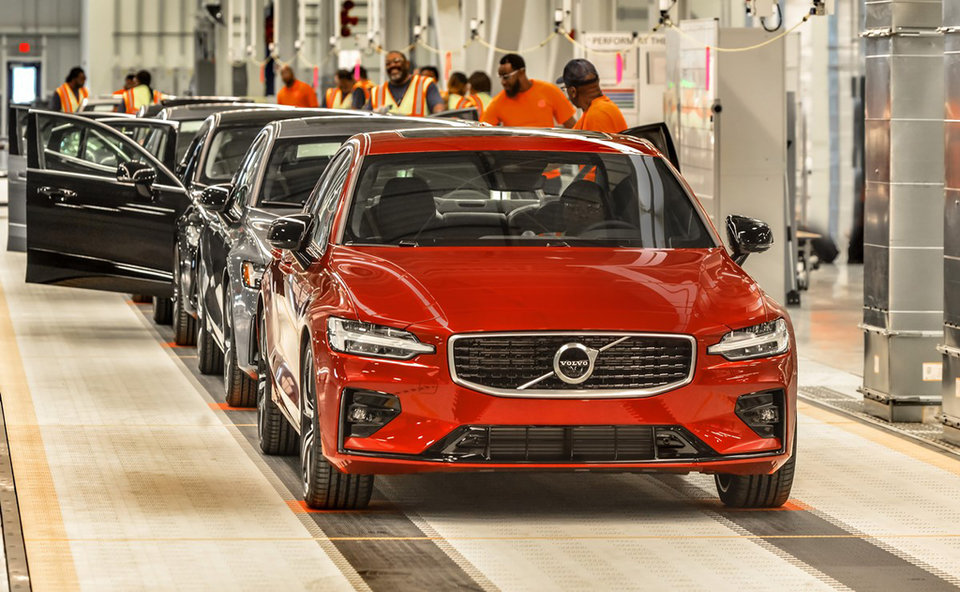
Volvo and the IPO that won’t be just yet
The overhauled carmaker has become increasingly ambitious under its new ownership – but unlike some Chinese and American rivals, it is taking things a bit more cautiously when it comes to a stock market debut
Volvo sedans on the floor of the South Carolina, USA manufacturing plant. Picture: Volvo Cars
Scroll down or swipe up to read more
There is little question that Geely’s decision to take Volvo off Ford’s hands in 2010 saved the European carmaker. China’s money, global outlook and technological ambition saved Volvo from a destiny like that of co-national brand Saab, and elevated the quality – and price bracket – of its vehicles to German-like levels.
Volvo’s operating revenue has grown tenfold since the acquisition, going from SEK 1.6bn (£136m) in 2011 to SEK 14bn last year. The company’s pace of recovery is far from staid, setting out some of the industry’s most ambitious targets for electrified – and eventually, autonomous – vehicles. It has not been afraid to challenge traditional routes to market either, pushing forward with a direct subscription offering that it hopes will make up half of all “customer relationships” by early next decade.
An IPO would have been the ultimate coronation for the back-from-the-ashes brand, a celebration of its global ambitions. But the right pieces for the much-hyped float have not yet fallen in place.
For starters, there is the China-US trade war. Volvo has been building a manufacturing plant in the US state of South Carolina, where it is looking high-margin SUVs. This should arguably give it some room for manoeuvre over US tariffs hitting exports from its China plants.
"An IPO would have been the ultimate coronation for the back-from-the-ashes brand, a celebration of its global ambitions."
But carmakers rely heavily on parts from all over the globe, and duty barriers will inevitably take their toll. Additionally, the company reportedly planned a double listing in Stockholm and a Chinese stock exchange: considering how Chinese equities are doing at the moment – again, thanks to the trade war – a float in Shanghai or Hong Kong is not really inviting.
Secondly, rumour has it that Volvo may be aiming a bit too high for its current market position. The company was aiming for a valuation in the $16bn to $30bn bracket for the IPO. But when advisors from Goldman Sachs, Morgan Stanley and JP Morgan came in, their initial valuation was $12bn to $18bn, Bloomberg reported.
"Volvo styles itself as a rival to Mercedes-Benz and BMW, but it’s still got a long way to go in terms of market share."
Finally, under Geely ownership, Volvo has become just as much a Swedish brand as it is a Chinese one. Sales volumes in the country trebled since 2010, going from little over 30,000 to 90,000 in 2017. But rival carmakers have not been sitting idle in the meantime. Volvo styles itself as a rival to Mercedes-Benz and BMW, but it’s still got a long way to go in terms of market share: the two German brands sold nearly 600,000 units in China last year.
Volvo chairman Håkan Samuelsson – whose term has been renewed to 2022 – has said an IPO is still something the company is still looking into. But the carmaker may have to wait until it is a bit more mature – and until the trade war winds have settled – to command the valuation it wants.
